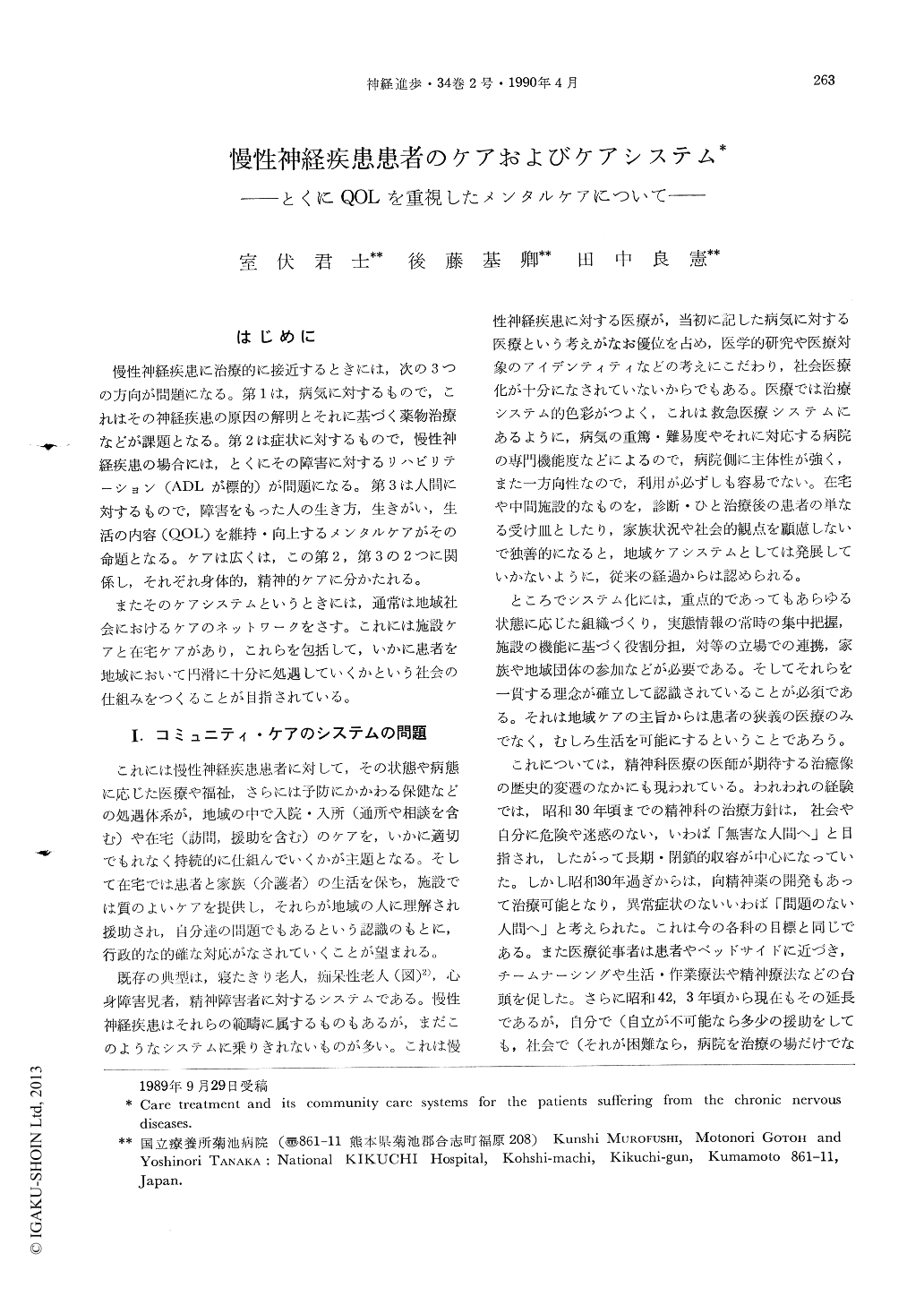Japanese
English
- 有料閲覧
- Abstract 文献概要
- 1ページ目 Look Inside
はじめに
慢性神経疾患に治療的に接近するときには,次の3つの方向が問題になる。第1は,病気に対するもので,これはその神経疾患の原因の解明とそれに基づく薬物治療などが課題となる。第2は症状に対するもので,慢性神経疾患の場合には,とくにその障害に対するリハビリテーション(ADLが標的)が問題になる。第3は人間に対するもので,障害をもった人の生き方,生きがい,生活の内容(QOL)を維持・向上するメンタルケアがその命題となる。ケアは広くは,この第2,第3の2つに関係し,それぞれ身体的,精神的ケアに分かたれる。
またそのケアシステムというときには,通常は地域社会におけるケアのネットワークをさす。これには施設ケアと在宅ケアがあり,これらを包括して,いかに患者を地域において円滑に十分に処遇していくかという社会の仕組みをつくることが目指されている。
1. Most of the patients with chronic nervous diseases were apt to become incurable and fall into a difficulty of daily livings. In this connection, only a medical treatment in a narrow sense can not be reached a efficient settlement, community care systems of the same kind for the bed-ridden or demented patients and physical handicapped, were required.
2. Observing the patient's behavior in their daily lives on the hospital care, the mental or physi-cal handicaped could be seen in the following ways. Though they had a mental handicap, namely the dementia, they could be recognized that they are trying to the best to live through, or they are at a loss deciding what to do. Therefore, to develop the mental care treatment, their mental attitude and psychological mechanism should be known throughly, and then, help the patients leading them to live a life worthy of man.

Copyright © 1990, Igaku-Shoin Ltd. All rights reserved.


